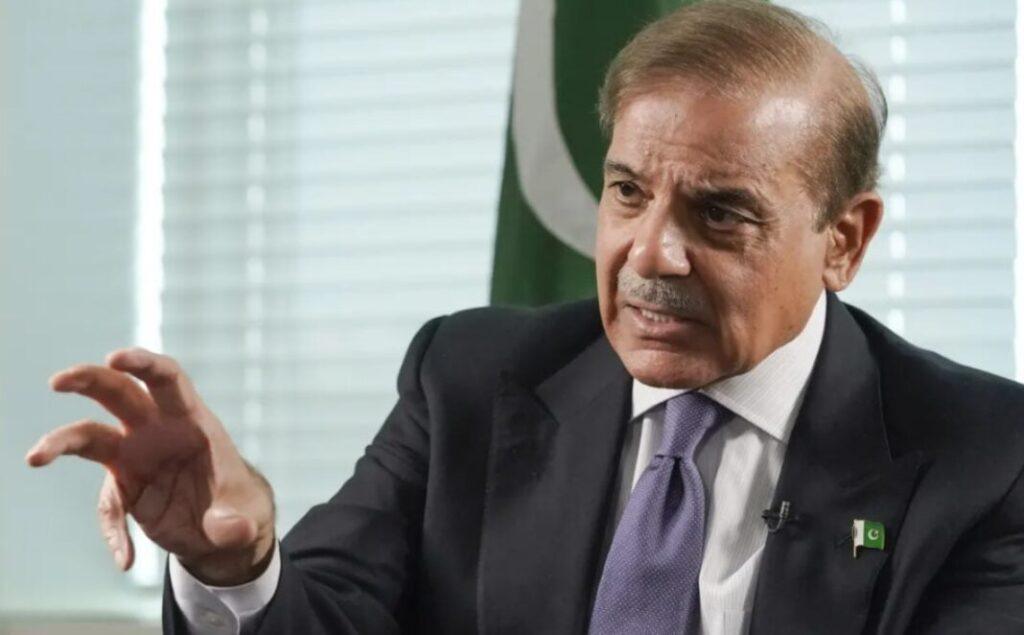ISLAMABAD:
A civil and military meeting on Friday vowed to stop the wave of terrorism in the country with zero tolerance towards “Fitna al-Khawraj.”
Prime Minister Shehbaz Sharif chaired a meeting of the National Action Plan (NAP) Apex Committee amid a rise in terrorist attacks and recent tensions with neighboring Afghanistan.
Chief ministers of all provinces, the army chief, senior security officials and other relevant authorities attended the meeting to take stock of recent developments.
Pakistan saw an unprecedented rise in terrorist attacks in 2024, the worst year since 2014, when the war on terror was at its peak. The deteriorating security situation was attributed to the return of the Afghan Taliban to the neighboring country in August 2021.
Tensions deepened last week between the two countries when Kabul alleged that Pakistan carried out airstrikes in border areas, targeting hideouts of the banned Tehreek-e-Taliban Pakistan (TTP).
A few days later, Taliban forces from Pakistan and Afghanistan exchanged intense fire along the border, raising the temperature even further. However, guns are silent now after both sides activated diplomatic channels.
A statement issued by the Prime Minister’s Office said Shehbaz reaffirmed his determination to completely eliminate the menace of extremism, emphasizing that all segments of society must work together to eradicate this threat to the progress and prosperity of Pakistan.
He highlighted the need to curb the venom being spewed against Pakistan on social media, adding that the elements involved in conspiracies against the country are well known. He stated that those who think that the sacrifices of the nation’s soldiers will be in vain are seriously mistaken.
The Prime Minister welcomed the Federal Ministers, Army Chief, Chief Ministers, Chief Secretaries, Chief Minister of Azad Kashmir, Chief Minister of Gilgit-Baltistan and senior officials present.
He congratulated the participants on Pakistan assuming its responsibilities as a non-permanent member of the United Nations Security Council (UNSC). The prime minister highlighted that Pakistan’s tenure in the UN Security Council would last for more than two years, during which it would play an active role in international diplomacy to its fullest potential.
He also praised the efforts of the Deputy Prime Minister and the Foreign Minister, along with their team, in achieving this milestone.
The Prime Minister emphasized that Pakistan would effectively discharge its diplomatic responsibilities to promote global peace. He revealed that efforts were being made to strengthen Counter Terrorism Departments (CTDs) in all provinces, with Punjab in the lead.
He highlighted the importance of equipping the police with modern training, technology and tools along with merit-based recruitment, especially in the wake of prevailing threats from enemies and their nefarious intentions.
Shehbaz Sharif underlined the importance of coordinated strategies between federal, provincial and defense institutions to eradicate extremism.
He acknowledged that the recent cross-border attacks met with a strong response and condemned the external support behind anti-state activities in Balochistan.
He asserted that Pakistan’s dream of development and prosperity could only be realized by improving law and order in all provinces as well as in Azad Kashmir and Gilgit-Baltistan.
The Prime Minister reiterated that the threat of extremism was long overdue. He affirmed that national interests take priority over personal preferences and expressed confidence that this sentiment was shared by all stakeholders.
He warned of the growing challenge posed by anti-Pakistan campaigns orchestrated by external actors on digital platforms, where lies and distorted facts are used to create a negative narrative against the country.
Referring to the recent Islamabad attack, the Prime Minister lamented the false stories made up about the sacrifices of the Rangers personnel. He assured that the sacrifices of the armed forces, police and law enforcement agencies would not be in vain, stating that Pakistan’s resilience was rooted in these sacrifices.
He concluded by urging all stakeholders to come together to eliminate extremism and guide Pakistan towards the path of progress and prosperity.




